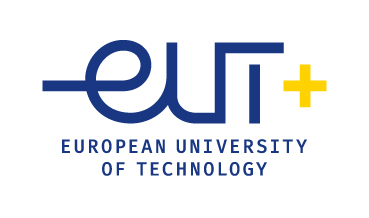Document Type
Article
Disciplines
5.3 EDUCATIONAL SCIENCES
Abstract
Purpose: The purpose of this systematic review of the literature (SLR) was to draw attention towards the various benefits as well as the challenges associated with the adoption of reverse mentoring models in various universities. In addition to this, this SLR will help academicians to understand the perspective of students so as to advance the principles of equality, diversity and inclusion across universities with the potential to help make universities more imaginative and equitable environments for one and all. This paper also proposed to outline future research on this topic, which is around how the organisational culture can play a pivotal role in upporting the reverse mentoring dyads.
Design/methodology/approach – A Systematic Literature Review (SLR) based on reflexive thematic analysis was conducted; review questions and key search terms were formed. Three academic databases were used, and the initial search yielded 130 papers. The Preferred Reporting Items for Systematic Reviews and Meta-Analysis (PRISMA) guidelines (Page et al.,2021) were used for screening the papers and 10 papers were selected based on inclusion and exclusion criteria. The Crowe Critical Appraisal Tool (CCAT) was used to assess the quality of the resultant papers, and all were included in the review (Crowe and Sheppard, 2011).
Findings – The articles included in this systematic literature review on reverse mentoring shed light on how reverse mentoring is effective in bridging the technology divide between intergenerational groups and can promote diversity and inclusion. Reflexive Thematic Analysis by Braun and Clarke (2021) helped to condense the major findings into two themes and eight
subthemes. Along with the benefits, some key challenges of reverse mentoring were discussed in the analytical themes; some of the challenges that were discussed include but are not limited to time constraints and less experienced mentors. Originality/value–As per the knowledge of the researcher, this is the first-ever systematic review of literature in the field of reverse mentoring, which has followed the PRISMA guidelines to screen papers between January 2007 till August 2023. Findings from this review would help academicians and practitioners to understand the various benefits as well as challenges of implementing the reverse mentoring model across universities. It would help academicians to address the barriers to RM, thereby promoting the values of equality, diversity, and inclusion across universities.
DOI
https://doi.org/10.21427/w5ts-4k96
Recommended Citation
Israni, B. (2022). Reverse Mentoring (RM) an effective way to advance the principles of equality, diversity, and inclusion across universities: a systematic review of literature (SLR) In Re-imagining higher education through equity, inclusion and sustainability (RISE). Proceedings of the 2nd. EUt+ International Conference on Equality, Diversity and Inclusion, Technical University of Sofia, Sozopol, Bulgaria, 1-3 September. diu:10.21427/w5ts-4k96
Creative Commons License

This work is licensed under a Creative Commons Attribution-NonCommercial-Share Alike 4.0 International License.



Publication Details
In Re-imagining higher education through equity, inclusion and sustainability (RISE). Proceedings of the 2nd. EUt+ International Conference on Equality, Diversity and Inclusion, Technical University of Sofia, Sozopol, Bulgaria, 1-3 September.
doi: 10.21427/pqq1-1q52